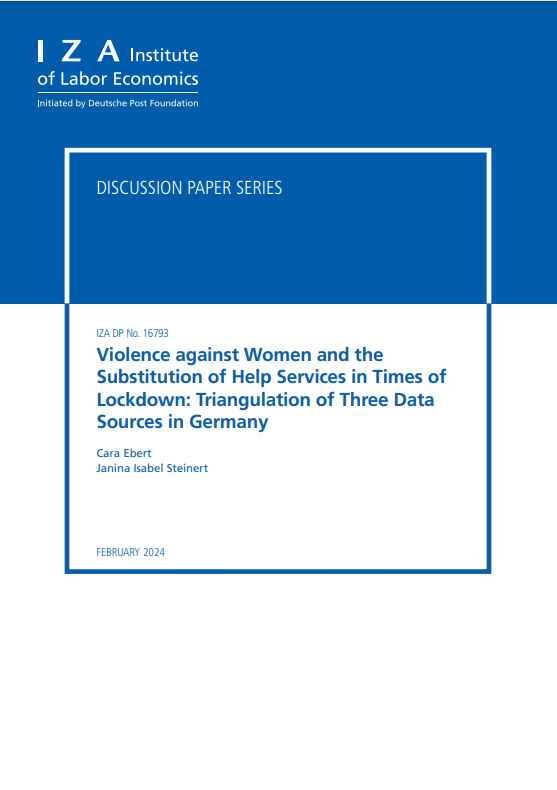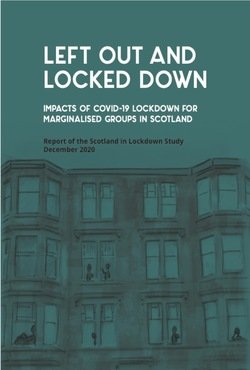By Cara Ebert, Janina Isabel Steinert:
We study the impact of the COVID-19 pandemic on domestic violence against women in Germany in 2020. The analysis draws on three data sources: (1) longitudinal administrative data on the volume of help requests to helplines, shelters and counselling services, (2) cross-sectional survey data collected during the first wave of the pandemic, and (3) a qualitative online survey with counsellors and domestic violence experts. The number of violence-related requests at helplines increased significantly by 29% with the first physical distancing measures, whereas ambulatory care services such as shelters experienced a 19% increase in help requests only after physical distancing restrictions were lifted. Our results indicate that individuals substituted help services away from ambulatory care towards helplines. We do not observe exacerbated violence in states with greater mobility reductions, lower daycare capacity for childcare or higher COVID-19 infection numbers. Our findings highlight the importance of providing easily accessible online counselling offers for survivors of violence and governmental financial relief packages.
IZA DP No. 16793 Bonn, Germany: IZA – Institute of Labor Economics, 2024. 47p.



